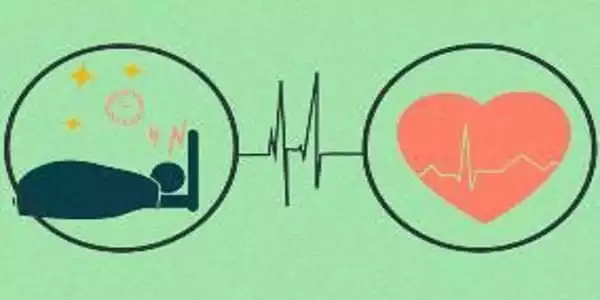Sleep allows the body to rest and recharge, and it is essential for nearly all aspects of physical health. Insufficient or fragmented sleep can contribute to blood pressure issues and increase the risk of heart disease, heart attacks, diabetes, and stroke in the cardiovascular system. As a result, getting enough sleep may help prevent cardiovascular system damage and, for people with heart problems, can be part of living a heart-healthy lifestyle.
Individual aspects of sleep deprivation can be harmful to heart health. However, when they are combined, the risk of heart disease can rise by up to 141 percent. That’s according to the findings of a new study published in the journal Scientific Reports.
The study, led by the University of South Florida, examined sleep data from 6,820 U.S. adults with an average age of 53 who self-reported their sleep characteristics and history of heart disease. 633 of the participants also wore a research device (actigraphy) around their wrist, which recorded their sleep activity.
These findings highlight the importance of assessing an individual’s ‘co-existing sleep health problems’ in order to determine the risk of heart disease. This is one of the first studies to show that having more sleep health problems in middle-aged adults may increase the risk of heart disease
Soomi Lee.
Researchers looked at several aspects of sleep health, including regularity, satisfaction, alertness during waking hours, sleep timing, sleep efficiency, and sleep duration, and linked them to physician-diagnosed heart disease. They discovered that every increase in self-reported sleep health problems was associated with a 54% increased risk of heart disease. The estimated risk of heart disease associated with an increase in sleep health problems was significantly higher for those who provided sleep data via self-report as well as the research device. They had a 141 percent increase, which could be interpreted as more accurate.
“These findings highlight the importance of assessing an individual’s ‘co-existing sleep health problems’ in order to determine the risk of heart disease. This is one of the first studies to show that having more sleep health problems in middle-aged adults may increase the risk of heart disease” Soomi Lee, assistant professor of aging studies and director of the STEALTH lab at USF, is the study’s lead author.
“The higher estimated risk in those who provided both self-report and actigraphy sleep data suggests that accurately and comprehensively measuring sleep health is important to increase the prediction of heart disease.”
When we wake up feeling refreshed and ready to face the day, the positive effects of a good night’s sleep are immediately apparent. Lundberg goes beyond simply feeling good to explain the tangible benefits to our bodies. “Sleep has a positive effect not only on your heart health, but also on your stress hormones, immune system, breathing, and mental status,” she says.

The researchers questioned participants about their health, including whether their doctor had confirmed a heart condition such as arrythmia, a heart murmur, or an enlarged heart. High blood pressure was not considered a diagnosis because it is classified as a risk factor for heart disease rather than a condition. They also took into account a family history of heart disease as well as sociodemographic factors like race, gender, smoking, depression, and physical activity.
Researchers discovered that, while women reported more sleep health issues, men were more likely to suffer from heart disease – despite the fact that gender had no effect on the overall correlation between the two factors. They also discovered that black participants had more sleep health issues and a higher prevalence of heart disease than white participants, but the strong association between sleep health and heart disease did not differ by race.
Blood pressure drops by 10-20% during normal, healthy sleep 5. This is known as nocturnal dipping, and research has shown that it has a positive impact on cardiovascular health. Poor sleep, whether due to a lack of sleep or disruptions in sleep, is associated with non-dipping, which means that a person’s blood pressure does not drop at night. According to research, high nighttime blood pressure is linked to overall hypertension (high blood pressure).
Indeed, nocturnal blood pressure has been found to be more predictive of heart problems than daytime blood pressure. Non-dippers have an increased risk of stroke and heart attack. It’s also been linked to kidney issues and decreased blood flow to the brain.
While sleep health is important for all ages, Lee says the team focused on middle adulthood because it spans a longer period of time and includes diverse and more stressful life experiences as a result of work and family roles. This is also the time when risk factors for heart disease and sleep problems associated with aging begin to emerge.
Because sleep health can be improved, researchers believe their findings will help develop future prevention strategies to reduce the risk of heart disease, which is the leading cause of death in the United States.
















